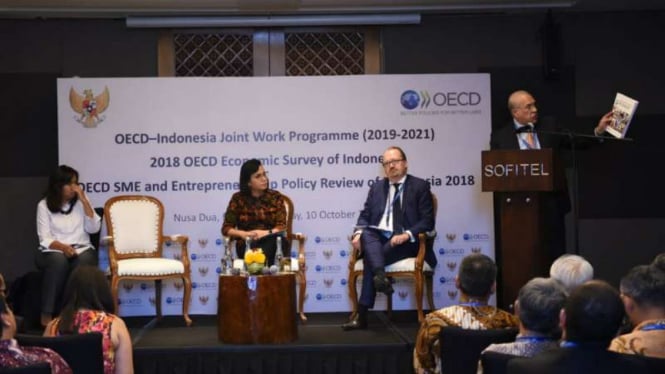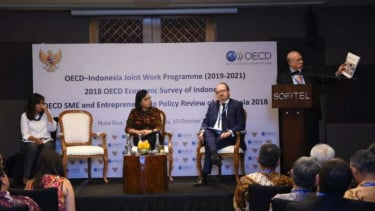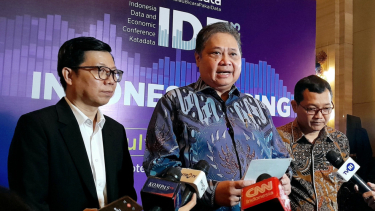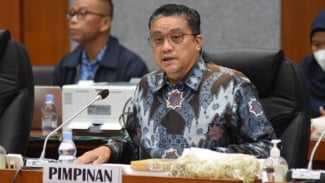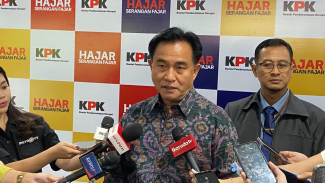Indonesia Ready to Become OECD Member After Japan and South Korea
- Dokumentasi Kemenkeu.
Jakarta – The Indonesian Coordinating Minister for Economic Affairs, Airlangga Hartarto said that Indonesia is ready to become a member of The Organisation for Economic Co-operation and Development (OECD).
"I spoke with (OECD) Secretary-General Mathias Corman to convey that Indonesia is ready to become a member of the OECD. The response has been very positive, and Indonesia is now a key partner, which means we are invited to every OECD meeting," Minister Hartarto said at the 'Indonesia Rising' events, Thamrin Jakarta, on Thursday.
If Indonesia becomes a member of the OECD, it will be the third country in Asia after Japan and South Korea to join the cooperation organization based in France, he noted at the 2023 Indonesia Data and Economic Conference (IDE) in Jakarta on Thursday.
Menko Perekonomian Airlangga Hartarto.
- VIVA/Mohammad Yudha Prasetya.
He said it is important for Indonesia to become a member of the OECD because that will allow it to apply higher standards in the entire legislative process, both in the process of forming legislations to the types of regulations and standards that will be applied at each ministry and institution.
According to the minister, Indonesia deserves to be an OECD member since, after the COVID-19 pandemic, the country has again become an upper middle-income country, successfully organized the G20 Summit, and led the ASEAN Summit amid difficult situations ranging from pandemic, war, and climate change.
"We have succeeded in making breakthroughs and at the same time, grounding the G20 with various programs, including the launch of the Partnership for Global Infrastructure, JPP, and others," Minister Hartarto said.
There are many programs that have been grounded from the G20 meeting and this has never happened before, so hopefully, in the next few years, Indonesia will become the third country in Asia to be included in the OECD group, Hartarto disclosed.
The OECD is an intergovernmental organization (IGO) that was founded in 1961 to encourage economic cooperation among countries. Currently, the developed country organization has 38 member countries.
Based on Article 1 of the OECD convention, the organization was established to "achieve sustainable economic growth, employment, and the highest standard of living among its member countries, while maintaining financial stability, and contributing to world economic development.
The organisation also promotes policies that contribute to economic expansion, both in member and non-member countries. Another objective of its policy is to promote regulations that expand world trade on a multilateral and non-discriminatory basis, in line with international obligations.

